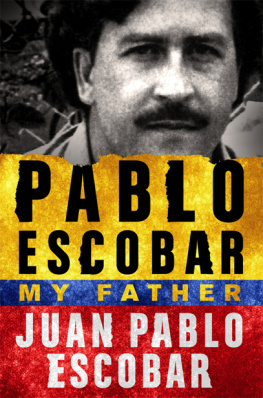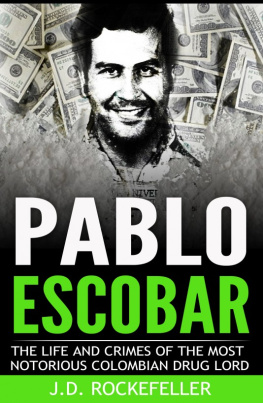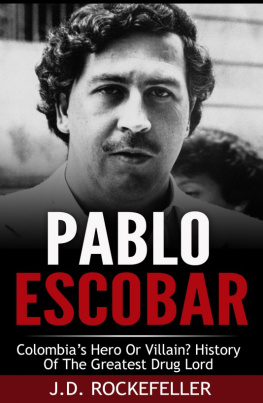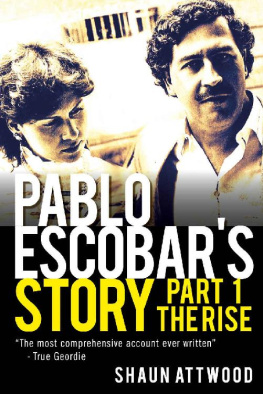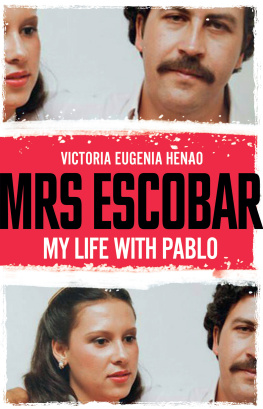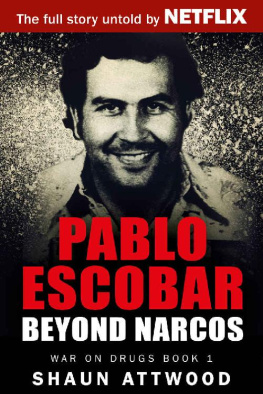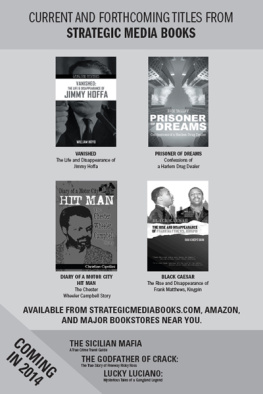
To my son, who gives me the strength and energy to be a good man.
To my unconditionally beloved, companion in all my adventures.
To my brave mother.
To my cherished sister.
To my dear family.
And to those few friends who overcame fear.
I stayed silent for more than twenty years as I pieced my life back together in exile. There is a time for everything, and this book, like its author, required a period of maturation, self-reflection, and humility. Only after that was I ready to sit down and write these stories.
From the day I was born till the day he died, my father was my friend, my guide, my teacher, and my trusted adviser. While he was still alive, I sometimes pleaded with him to write his real story, but he refused: Grgory, hed say, youve got to finish making history before you can write it.
After he died, I swore to avenge my fathers death, but I broke that promise within ten minutes. All of us have the right to change, and for more than two decades I have been living a life guided by clear rules of tolerance, peaceful coexistence, dialogue, forgiveness, justice, and reconciliation.
This book does not point fingers. Instead, it offers reflections on how Colombia and its politics function, and on why Colombia produces people like my father. I have a great deal of respect for life, and it is from that place that I have written this book. I have no hidden agenda, unlike most who have written about my father.
Nor is this book the absolute truth. It is a quest, an attempt to get closer to my fathers life. It is a personal, intimate investigation. It is the rediscovery of a man, with all of his virtues but also with all of his faults. Most of these anecdotes are ones he told me as we huddled around bonfires on the long, chilly nights of the last year of his life. Others he left me in writing when it seemed that his enemies were very close to killing us all.
I wasnt always by my fathers side; I dont know all his stories. Anyone who claims to know them all is lying. I learned the stories contained in this book long after the events had taken place. My father never consulted with me nor with anyone else about any of his decisions. He was a man who made up his own mind.
My journey to learn more of my fathers story led me to people who had been in hiding for years, who only now were ready to participate. Their contributions have added much-needed clarity to my own memories and research. Most of all, though, they help ensure that these demons will never be passed down to subsequent generations.
Many truths about my father are known only partiallyor not known at all. And so telling his story involves great risk because it must be recounted with an enormous sense of responsibility, as much of the terrible things that have been said about him sadly seem to be quite accurate. This is a deeply personal exploration of the inner world of a human being who, in addition to being my father, headed up the most notorious Mafia organization in human history.
I wish to publicly ask my fathers victims, every single one of them, for forgiveness. I am anguished by the devastation they experienced in the face of an unparalleled, indiscriminate violence that affected so many innocent people. I want them to know that today I seek to honor each of their memories, with all my heart. This book will be written with tears, but without bitterness. Not out of a desire to condemn or to seek vengeance, and without offering excuses to promote violence or attempt to justify wrongdoing. The reader will be surprised by the contents of the first chapters, in which I reveal for the first time the deep rift that yawns between me and my fathers side of the family. After twenty-one years of quarrels with them, I am convinced that a number actively contributed to the final events that resulted in my fathers death.
It is no exaggeration to say that we have been treated more harshly by my fathers family than by his worst enemies. My actions toward them were always born out of love and an unconditional respect for the value of family, which must be held on to even in the chaos of war and especially in the hardship of poverty. God and my father both know that I, more than anyone, wished fiercely to believe that this painful family tragedy was only a nightmare. I am grateful to my father for his brutal honesty; it has been my fate to have to see him clearly, to face the man he was without justifying his actions in the least.
When I asked for forgiveness in the documentary Sins of My Father, the children of the assassinated politicians Luis Carlos Galn and Rodrigo Lara Bonilla told me, You are a victim too. My reply to that remains unchanged: if I am a victim, I am merely the last one on a long list of Colombians. My father was responsible for his fate, for his actions, for his life choices as a father, as an individual, andat the same timeas the criminal who inflicted on Colombia and, indeed, on the whole world, deep wounds that are still being felt. I dream that one day those wounds might heal and become sources of good, so that nobody dares to repeat this story but learns from it instead.
I was not a blindly loyal son. I questioned my fathers violent tactics while he was alive, and I repeatedly pleaded with him to abandon his hatred, to put down his arms, to find nonviolent solutions to his problems.
In all of peoples wide-ranging opinions about my fathers life, everybody agrees on one thing: his unconditional love for this, his only family.
I am a person who wishes to be remembered for his own deeds, not for his fathers. I hope that the reader will not forget about me as he reads these stories, nor confuse me with my father. After all, this is my story too.
In the Residencias Tequendama apartment hotel on December 3, 1993, after the trip to bury my father in Medelln, our firm intention was to live as normal a life as circumstances allowed. For my mother, my sister Manuela, and me, the past twenty-four hours had been the most dramatic of our lives. Not only did we have to endure the agonizing pain of losing the head of the family in such a violent manner, but the funeral had been even more traumatic.
A few hours after Ana Montes, the national director of the attorney generals office, personally confirmed to us that my father had died, we had called the Campos de Paz cemetery in Medelln. They refused to perform the funeral service, and we might have had a similar experience with Jardines de Montesacro, except that relatives of our lawyer at the time, Francisco Fernndez, owned the cemetery. My grandmother Hermilda had two lots there, and we decided to use them to bury my father and lvaro de Jess Agudelo, known as Lemon, the bodyguard who was with him when he died.
After assessing the risks of attending the funeral, for the first time we defied one of my fathers old orders: When I die, dont go to the funeral; something could happen to you there. Hed insisted that we shouldnt bring him flowers or visit his grave either. But my mother said shed go to Medelln against Pablos wishes.
Well, then well all go, and if they kill us, so be it, I said, and we rented a small plane to travel to Medelln with two bodyguards assigned by the attorney generals office.
After landing at Olaya Herrera Airport and being besieged by dozens of journalists, who even risked their lives by swarming onto the runway while the plane was still moving, Manuela and my mother were ushered into a red SUV and my girlfriend Andrea and I into a black one.
When we arrived at Jardines de Montesacro, I was pleasantly surprised to see how many people had shown up for the funeral. It was a testament to the love that the lower classes felt for my father, and I was touched to hear the same chant they used when he would inaugurate athletic fields or health clinics in poor areas: Pablo! Pablo! Pablo!
Next page
